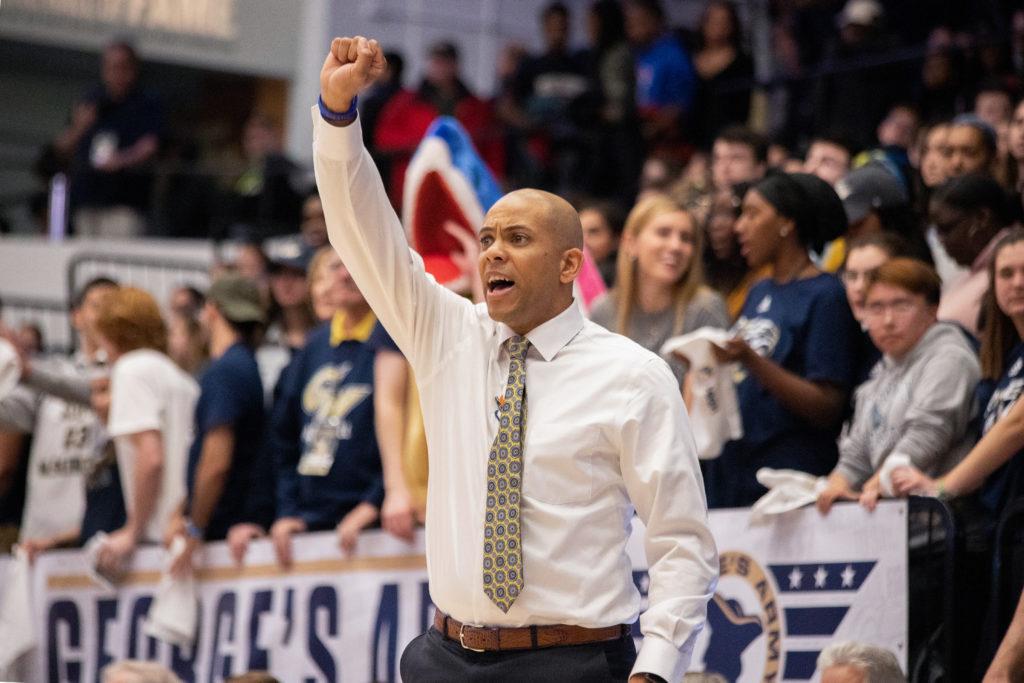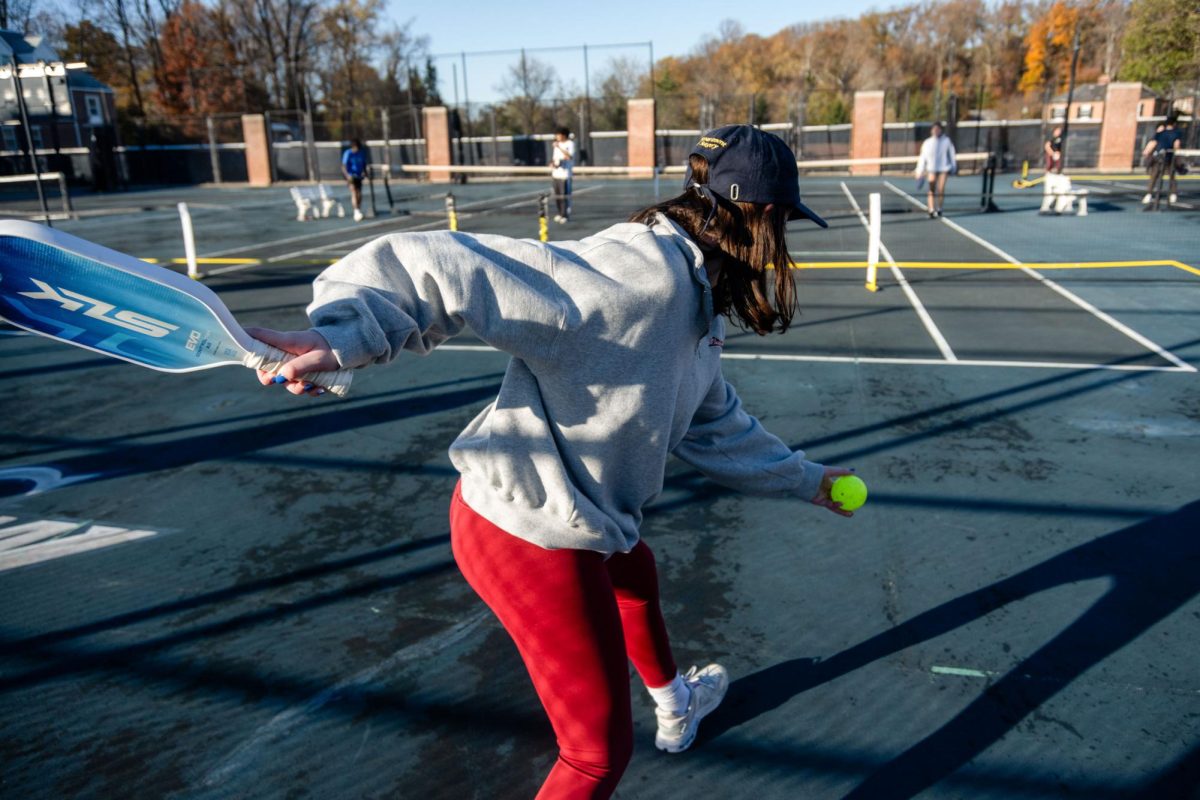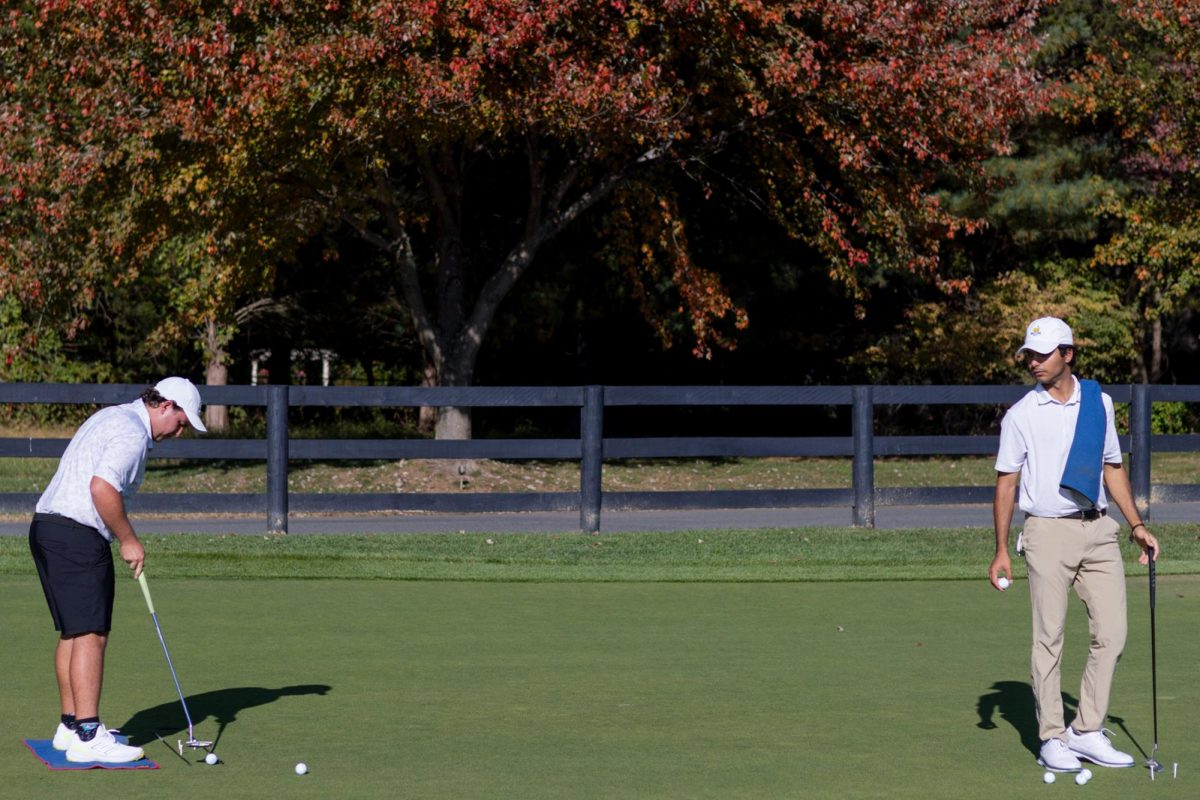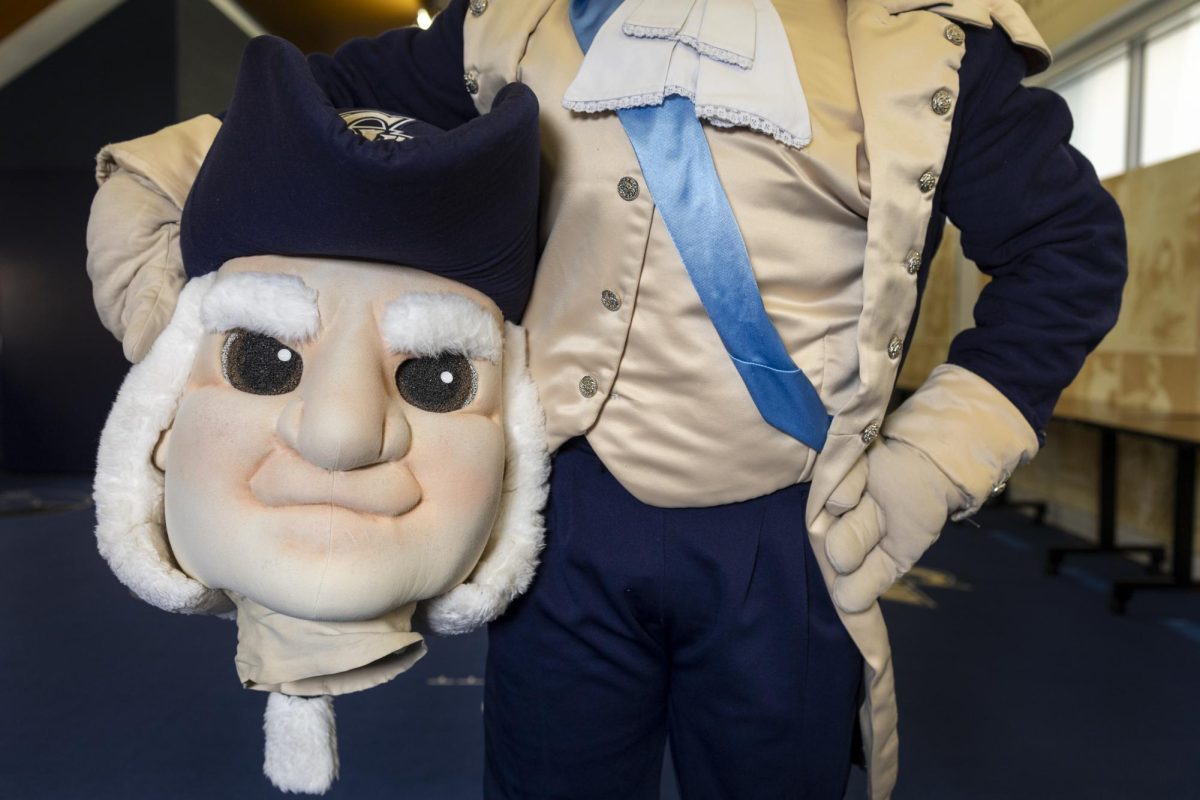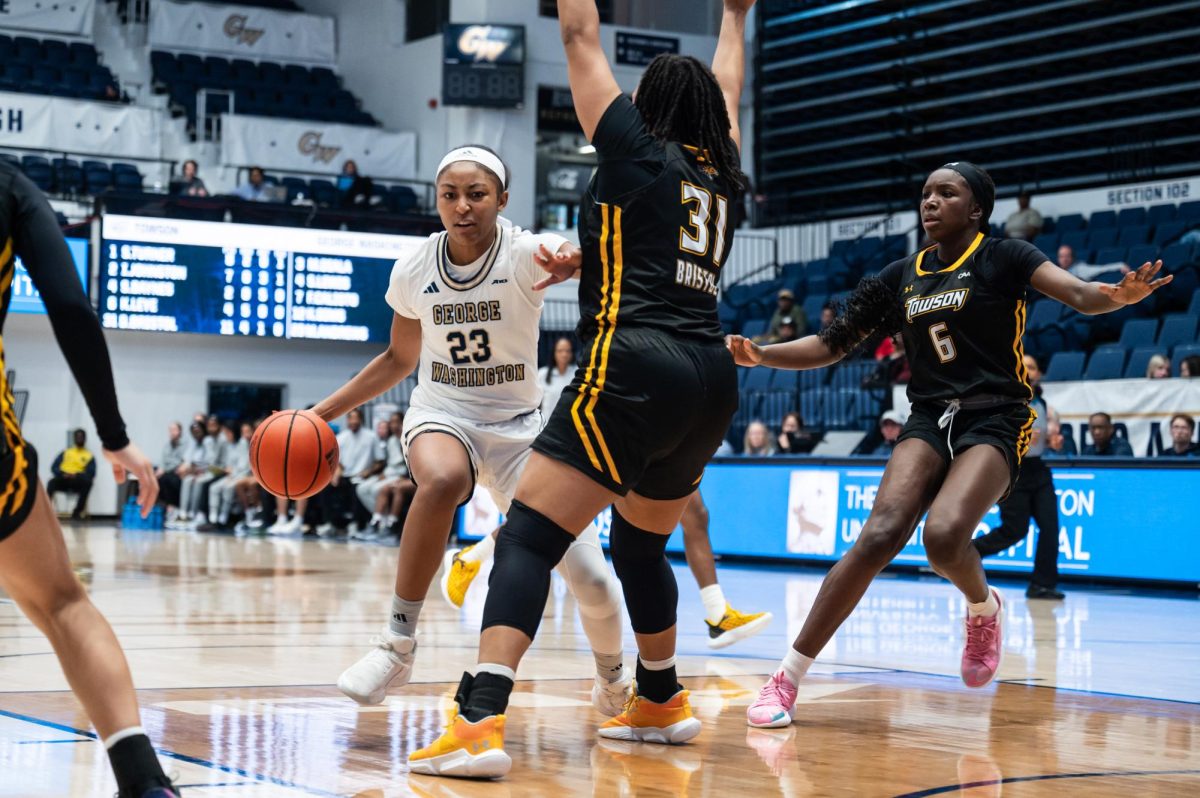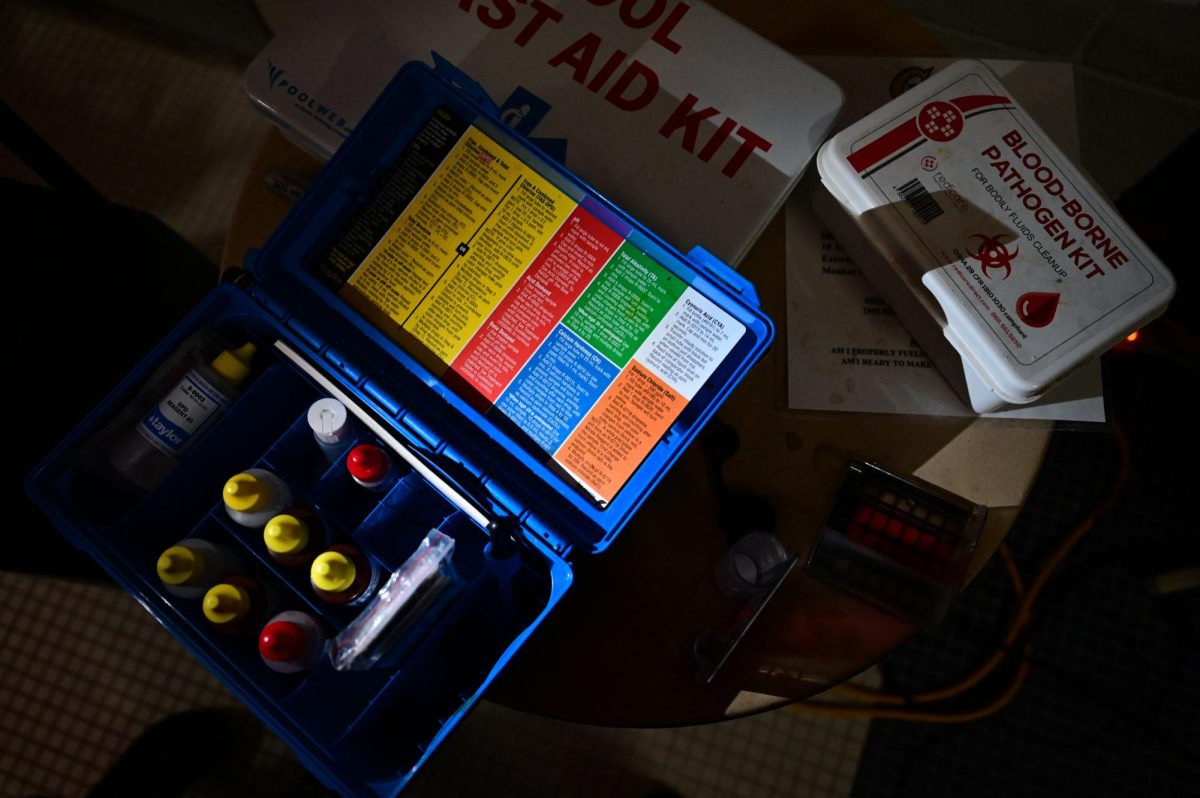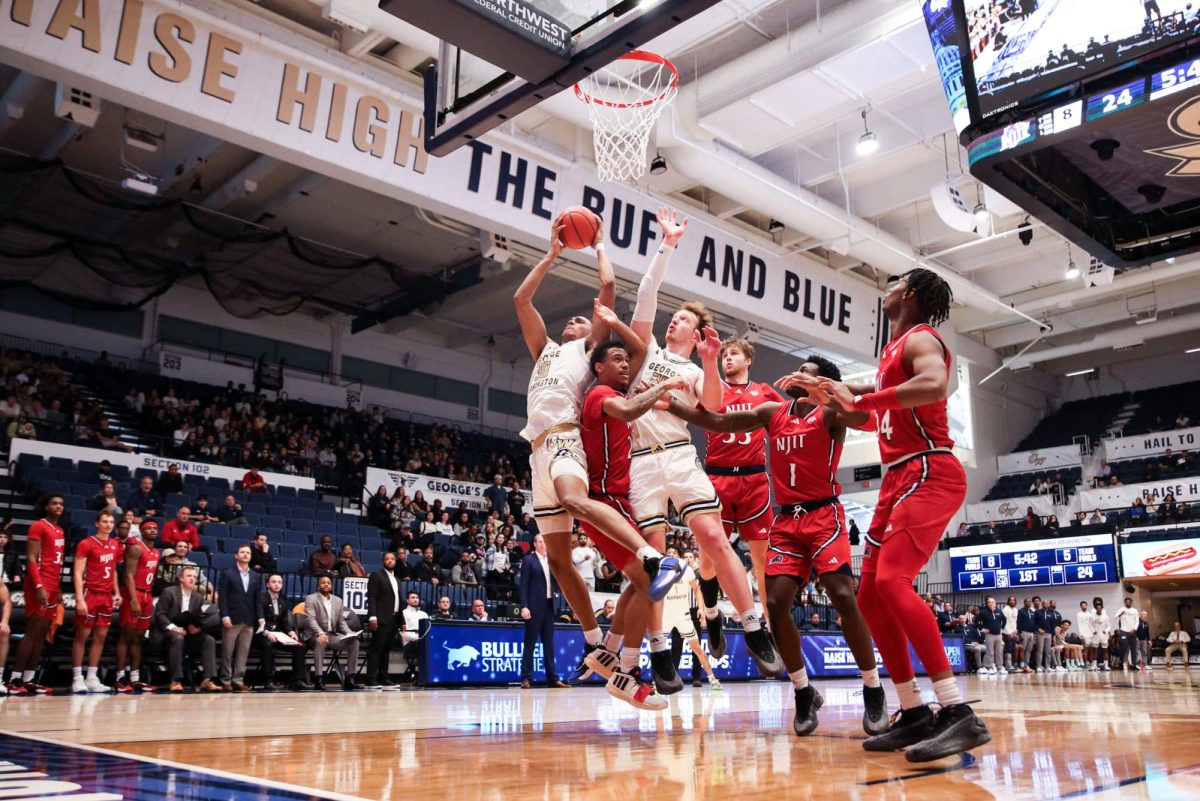Marked by a Sweet Sixteen run and consecutive trips to the Big Dance, men’s basketball head coach Jamion Christian has leafed through old clips of the team through the 1990s and 2000s to understand its history.
The Colonials have gone dancing 11 times under four head coaches and are in the thick of rebuilding the program to its former pedigree. With GW’s winning history in his rearview mirror, Christian said he has analyzed how past teams played and is “inspired” to lift the squad to its former glory, sharing clips of old games on Twitter.
“Over this time I’ve just been obsessed with watching how it was, and I’m really determined about how we can get it back there and make it our own,” Christian said.
The Colonials’ first two trips to the NCAA Tournament were in 1954 and 1961 under head coach William Reinhart. He spent 24 seasons at the helm of men’s basketball, but his teams could not escape the first round.
A 32-year drought would plague men’s basketball before it reappeared at the NCAA Tournament. With the program manned by Mike Jarvis at the time, the squad returned with a vengeance to reach the Sweet Sixteen. Despite a 21-9 record, the Colonials were a Cinderella team – a No. 12 seed who hadn’t hit the court since losing in the first round of the Atlantic 10 Tournament.
Christian said Jarvis played with a “cerebral” style that featured aggressive guards and talented forwards.
The team upset then-No. 5 New Mexico in the first round and held then-No. 13 Southern off to reach the third round of the tournament – a feat no team on the men’s or women’s side had previously attained. The squad squared up with Michigan’s Fab Five and took the contest down to the wire, ultimately falling to the eventual runner-ups.
Christian said Colonials in the past played with “swagger” and had confidence when they stepped onto the court. He added that he loved the emotion and pride the teams exuded about playing at GW.
“Those are things that great programs have, just a great level of pride,” Christian said. “You could see it every time they played. Every game you watched, home or away, they just had the confidence they were the best team on the floor, and it’s just fun to watch.”
Jarvis stayed behind the bench for seven seasons, leading the squad to three more NCAA Tournament appearances. The then-No. 10 Colonials knocked off the University of Alabama at Birmingham before falling to then-No. 2 UConn in the second round of the 1994 NCAA Tournament. The team was ousted in the first round in 1996 and 1998, falling to Iowa and Oklahoma State, respectively.
Jarvis was an international recruiter, bringing in players from four continents during his time at GW. Christian said the success on the national stage drove people into Foggy Bottom.
He added that he and his coaching staff are setting up the infrastructure to start recruiting internationally within the next “two or three years.” He is currently focused on nabbing transferring student-athletes, a market Christian said is “big right now.”
“You’ll have a great familiarity with more players because guys are transferring and moving around more,” Christian said. “You want to make sure that you’re doing some leg work with some guys that might be a little bit above you because you want to have a relationship with them if they decide to leave.”
After Jarvis departed for St. John’s, Tom Penders took the reins of the program, leading it to its second straight Big Dance. But the Colonials, a No. 11 seed, couldn’t shake their streak of one-and-done finishes, bowing out of the tournament in a 20-point loss to Indiana.
Christian said Penders emphasized guard play, which allowed them to score and be quick on the hardwood.
After three seasons, Penders was replaced by Karl Hobbs, who stayed a decade and led the program to three straight NCAA Tournament appearances, two A-10 championships and one regular season A-10 crown.
Christian said Hobbs played a fast-paced, aggressive style of basketball that “pressed and trapped,” which helped produce high-level athletes.
After cutting down the nets at the A-10 Championship in 2005, the Colonials turned their attention to its first tournament game in six seasons. The team, slated as a No. 12 seed, made an early exit, falling to Georgia.
After nabbing the regular season A-10 title in 2006, the Colonials won an at-large bid to its second consecutive NCAA Tournament. The squad bested UNC-Wilmington by three points before facing off with top-seeded Duke. The Colonials fell 74-61 to the Blue Devils, ending their season in the second round.
With another A-10 Championship under its belt, Hobbs’ squad earned another tournament berth. At the No. 11 seed, the Colonials were trounced by No. 6 Vanderbilt in the first round.
Hobbs ended his tenure with two seasons creeping above .500, and the athletic department brought in Mike Lonergan to strengthen the program. After two losing seasons, Lonergan took the team to its final NCAA Tournament appearance in 2014 as a No. 9 seed. The Colonials left early, losing a five-point decision to Memphis in the first round.
Lonergan was fired from the program in 2016, and GW brought in Maurice Joseph to helm the team for three seasons before he was also dismissed.
Christian took the reins in 2019, leading his team to a 12-20 overall record in his first season. He said his team needs to have confidence, utilize its size and three-point shot but ultimately play as a team to get back to its former glory.
“It is about making sure your talented guys are playing well together and understand the importance of being on a team and see the barriers within themselves,” Christian said. “We’re trying to attract players to GW who understand the bigger picture and who they can become.”
Belle Long contributed reporting.


